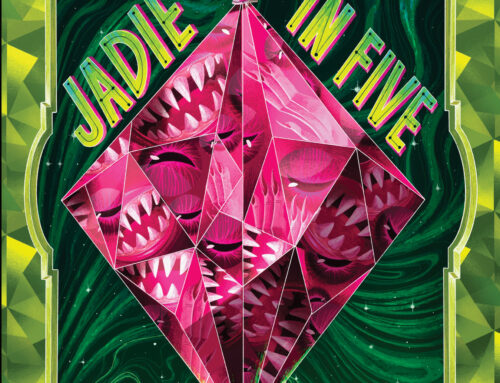Rosanne Parry’s latest book Turn of the Tide is an achievement of realistic fiction that’s received starred reviews. The book starts with the historical Tsunami in Japan and follows two cousins (one in Japan and the other in Oregon) as they dealt with the aftermath. The book is not only heart-warming, it’s an exciting adventure. We asked Rosanne about her writing success.
MGM: Although the tragic tsunami that hit Japan occurred only five years ago, most children don’t know much about it. Your book even taught me about how the earthquake affected the Northwest coast of the United States. What drove you to write this story?
Rosanne Parry: Any time you start a story you have to go looking for trouble so that your story will have conflict. I’ve long known that The Columbia River Bar is the most dangerous dozen miles in the entire Pacific so that provided danger aplenty for Jet and Kai while they are in Astoria. But I needed a different sort of danger to bring Kai to his cousin’s house from Japan and an earthquake and tsunami seemed like a natural and plausible reason. Oregon is in earthquake zone and I’ve experienced a few of them myself. Tsunamis are a part of costal living all over the world, so it’s a touch point for anyone who lives near the ocean. And as a bonus middle grade readers study earthquakes, volcanoes, and tsunamis in school, which makes the book a terrific candidate for a classroom read aloud. I’m so grateful for teachers who read my books to their class.
MGM: Were you already familiar with the Japanese culture or did you have to do much research?
RP: I grew up with many Japanese American classmates from grade school all the way through college. My family has hosted exchange students from Japan. One of my brother’s closest childhood friends was biracial like Kai and spent every summer in Japan living with his grandparents. He was so proud of his culture and language and I remember a few of the boys in my school teasing him about it. He didn’t look Japanese. He could have escaped the teasing, but he chose to be very openly proud of his culture anyway. He spoke Japanese fluently at a time when that language was not taught in schools. He was a student of Aikido when martial arts did not enjoy the popularity they now have. I was intrigued and impressed by him when I was ten years old, and I’m even more impressed now.
Personal experience aside I still had to do a lot of research and I’m really grateful for all the people who answered my questions and helped me find the information I needed. For example when I looked into the history of ghost stories in Japan I was intrigued to learn that, unlike the western tradition in which monsters reside in the dark of the forest or the depths of the ocean, in traditional Japanese ghost stories the most haunted places are in margins where one place transitions to the next—the edge of the forest and the surface of the water. There aren’t any ghost stories The Turn of the Tide but understanding this about Japanese culture helped me put Kai’s fear of the water in what I hope is a more authentic context.
Two members of my critique group have lived in Japan. My brother works for a Japanese company and has traveled there for business regularly over the last twenty years. My daughter’s high school Japanese teacher helped me with the Japanese language words, and also in sharing her family’s experience of the Fukushima earthquake, which helped me understand Kai’s desire to help his home community and his lingering fears about rising water. I could not have written this story without their help.
MGM: The two main characters are cousins and your book is dedicated to your own cousins. Why did you choose this family tie?
RP: Well first and foremost I have wonderful cousins and a large and loving family; it was a pleasure to honor them. From a writing standpoint the cousin duo a nicely rich relationship, you have the social and emotional obligations and intimacy that you feel for your siblings, but without the kind of pressure that the all day, every day sibling experience brings. It’s also a way to bring a touch point for a diverse readership. Many minority students and immigrating students of all races rely on a network of extended family, so that even if you aren’t Swedish American or Japanese American, that experience of spending time living with or near cousins is one that I think will resonate with lots of readers.
MGM: Your protagonists make some brave but ill-conceived decisions. What message do you want readers to take away from the story?
RP: Yes! They make terrible decisions. I cringe even now thinking of them. But I would like to point out that no matter how unwise, both of these kids wear their life jackets on the water. Every. Time. And they are wearing them on the cover. It was very important to me that even with all their mistakes they kept that most important safety rule. A nephew of mine who is a coast guardsman told me that he has never recovered a drowned body that was wearing a life jacket, but he’s rescued tons of survivors who were.
One of the hardest things when you are writing a character you love is to let that character make terrible mistakes, to in fact shape their personality with traits that will tend to get them into more trouble. I always choose a sin for a character to struggle with and in this story I chose to have both Jet and Kai struggle with pride. Because they come from different cultures, they express the sin of pride in different ways, but it trips them up again and again. On the other hand when they come to the core decision of the novel on race day, I think it’s their pride that drives to them to make the nobler choice.
MGM: This is a great book for classroom discussion. What has worked best during school visits? What is the most common question asked by students?
BP: Thank you! I’m so grateful for all teachers do to bring literature into the classroom. It’s very inspiring. On World Read Aloud Day February 24th I Skyped with hundreds of kids in a dozen classrooms on three continents over fifteen hours. It was so inspiring! Kids asked me about the compass so I showed them my grandfather’s compass, which I carried around in my pocket while writing this story. They asked some questions about details in the climax of the story and they wanted to know if Captain Dempsey is a real person. I’m proud to say that, yes, she is. She’s a legend in the maritime community and she was awesome enough to not only check all my sailing details for the story, she wrote a message to young mariners at the end of the book encouraging them to consider maritime careers. How awesome is that!?
MGM: Will the book be translated into Japanese? How do you think it will be received?
RP: Wouldn’t that be cool to have a translation? The big international book fair in Bologna Italy is in March so I guess we will hear then if it has been picked up for translation. Fingers crossed!
For more about Rosanne Parry visit her website and follow her on Twitter.
Don’t miss out on great content from the Mafia! Have agency news, author interviews, book reviews, etc. delivered straight to your In-Box by entering your email address in the Subscribe Form at the top/right of the page.







Leave A Comment